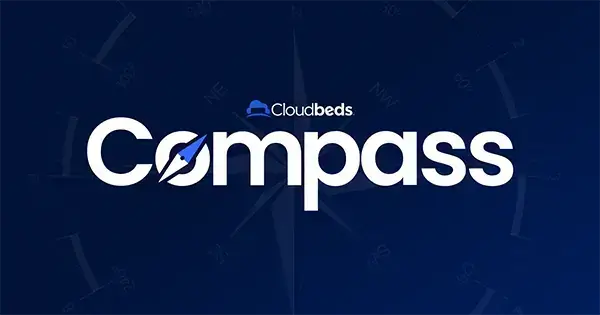Hostel revenue management:
Unpacking the potential of shared spaces
When people think of a hostel, what usually comes to mind is a fun, social, and affordable place to stay. What many people don’t think about is the complexities that exist behind the scenes, especially when it comes to revenue management.
With varying room types and configurations, hostel operators must juggle the complex dynamics of selling shared spaces, private rooms, and everything in between. In this article, we spoke to Lior Slepkov, Founder and Head Hostel Coach at hostel.consulting, to explore the differences between hotel and hostel revenue management and strategies to maximize revenue at your hostel.
Why is revenue management important for hostels?
Revenue management is one of the most crucial components of a successful hostel. Lior says, “Since the sales of bed nights are finite, the revenue potential is essentially gone forever once the day is over. Focusing on ways to maximize revenue by selling beds to the right market segment, at the right time and at the optimal price is a balancing act every hostel should master.”

A quick example of hostel revenue management
Lior shared the following scenario to illustrate the impact of effective revenue management.
Imagine you own a 10-bed hostel, where you’ve set the bed price at 25€. At this rate, you manage to sell 4 beds, earning a daily revenue of 100€. However, 6 beds remain unsold, representing lost potential revenue and uncovered fixed costs.
Now, let’s apply dynamic revenue management strategies, which involve adjusting prices and conditions to align with market demand. Suppose, by lowering the average price to 15€, you attract more guests and sell 8 beds. This strategy increases your daily revenue to 120€, a 20% boost compared to the original scenario. Alternatively, by raising the average bed rate to 45€, you might sell only 3 beds, but your total revenue for the day climbs to 135€, a 35% increase.
He says that the fundamental principle of hostel revenue management is “to achieve the highest daily revenue possible through the implementation of strategies that fill beds that would otherwise go unsold and capitalize on high demand by maximizing, within reason, the price of the beds that are most likely to be booked.” Sometimes, a lower occupancy with a higher average rate can lead to increased revenue. In other cases, a higher occupancy at a lower average rate is more profitable.
What is the difference between hotel and hostel revenue management?
At first glance, revenue management in hotels and hostels might seem similar. However, there are profound differences, Lior points out, that must be considered when developing strategies. These differences stem from varying room types, guest segments, and services offered.
Room types and inventory management
The most obvious difference between hotels and hostels is room type. Hotels typically sell private rooms, ranging from singles to suites. In contrast, hostels manage dormitories (sold on a per-bed basis), which can vary significantly (female-only, mixed 4-bed, 6-bed, 10-bed, etc.) and a mix of private rooms. This diversity in room types creates a more complex landscape for revenue management.
On top of this, to capitalize on specific room type demand, hostels can choose to navigate the challenge of ‘split inventory’ – managing the same physical space in different configurations – like selling a dorm as a private room. While dynamic room strategies can yield great results when done properly, they can just as easily lead to reduced occupancy and lost revenue if mishandled.
Guest segments
The target guest also differs vastly between hotels and hostels. Lior says, “Generally, a hostel’s target client is more thrifty, prioritizing and paying for experiences rather than facilities and design, whereas a hotel guest is more likely to prioritize and pay more for quality rooms, location, and amenities.”
This understanding shapes revenue management strategies; for example, hostels might find more success with early bird or length of stay discounts, appealing to price-sensitive travelers. In contrast, hotels are more likely to be successful in charging premium rates for high-quality rooms.
Hostels must be aware of their guest segments to implement effective pricing and promotional strategies. The diversity of travelers within the hostel market – from budget solo travelers to digital nomads and groups – requires a more nuanced approach to pricing and offerings.

Services, amenities, and the overall guest experience
Hotels typically leverage services and amenities to maximize revenue, offering packages that include premium services like spa treatments, airport shuttles, and all-inclusive options. For hostels, Lior notes, “The package focus of revenue management is much less relevant. Many times, the opposite approach is needed to optimize sales – trading service and amenities for a lower upfront cost.”
Hostels need to carefully consider the full experience they offer. Clear communication about what’s included in the price is a must. Many hostels provide significant value adds like welcome drinks, breakfast, guided tours, and coworking spaces, which can justify higher prices (but remember to consider what’s important to your target audience).
The perception of quality and its relation to price
Lior recently had a client running the top-rated hostel in their city who found themselves less occupied than their lower-rated competitors despite having lower prices. They were confused, and rightfully so. This situation presents a classic case in revenue management: the perception of quality and its relation to price.
Often, potential guests equate higher prices with better quality. To meet this expectation, Lior increased his client’s rates. By raising rates, the hostel aligned its perceived quality with its actual market standing, addressing the mismatch between price and perceived value. This strategy led to improved occupancy and revenue as it aligned guest expectations with the hostel’s offerings.
7 strategies to maximize revenue at your hostel
Maximizing revenue involves understanding and implementing specific strategies tailored to hostel operations. Here are a few strategies Lior shared with us to help hostel owners and operators increase revenue.
1. Understand the intricacies of hostel revenue management. Hostel owners need to take the time to understand the intricacies of hostel-specific revenue management. Lior says, “The biggest challenge for hostel revenue managers is the learning curve that comes with hostel-specific revenue management. Adapting learned practices and strategies for what works best for hostels adds another layer of difficulty that is truly unique.”
2. Define your guest segments. Lior has seen “revenue managers get outstanding results in private rooms yet fail to increase a hostel’s dorm revenue or fill them with their ideal guests – changing the dynamic and atmosphere of the hostel.” Accurately defining and understanding your guest segments is crucial to maintaining the “vibe” of your hostel and delivering on expectations.
3. Implement hostel-specific pricing strategies. Test out different strategies (like advanced booking discounts, non-refundable rates, and fully flexible rates) and conditions (like length of stay) to see what works best for your business and guest segments. Lior says, “There will most likely be a lot of trial and error, so keep track of changes that you make and come back to analyze the results of these changes.”
4. Collect and analyze data. Effective revenue management requires “a lot of data – past, present, and future – specifically segmented to hostels.” Utilizing the right tools to collect and analyze data is essential to make informed decisions.
5. Distribute inventory on the right channels. No matter how well you price your beds and rooms, without proper distribution, travelers won’t find you to book. Ensure you have a comprehensive distribution strategy that includes online travel agencies (OTAs) like Hostelworld and Airbnb, Google Hotel Search, and a direct website supported by a channel manager and booking engine.
6. Clearly communicate your offerings. Spend time optimizing your OTA profiles and website to clearly communicate your hostel’s value proposition. Include what amenities and services you offer and the overall experience guests can expect when they stay with you. This will help attract guests with the proper budget who will be satisfied with the experience upon arrival.
7. Invest in revenue management. Consider investing in resources that will help you optimize revenue management. Hire team members with expertise (like an internal revenue manager) or an external consultant who can help set your property up for success. Additionally, you can adopt revenue management tools with features like demand forecasting, event tracking, and automatic rule setting to support your team’s decision-making process.
Metrics used in hostel revenue management
There are several key performance indicators (KPIs) to gauge success and guide decision-making. Lior recommends that hostels separate dorm and private room KPIs for the best insights. Some of the most important metrics include:
Average daily rate (ADR). How much on average, you make from each room. For hostels, ADR can be calculated per room or per bed. For example, if one bed in a dorm is sold for $20 and another for $30, the ADR for that dorm type would be $25.
Revenue per available room (RevPAR). RevPAR refers to the average amount of income generated from each room in your hostel, regardless of whether it’s occupied or not. For example, in a 10-room hotel, if 5 rooms are sold for 100€ each (totaling 500€), the RevPAR is 50€.
Revenue per available bed (RevPAB). RevPAB becomes a more relevant metric when talking about hostels that want to analyze their sales by bed nights. It calculates the average income generated per bed. For example, in a hostel with 100 beds, if 50 beds are sold at 20€ each, generating a total revenue of 1,000€, the RevPAB would be 10€.
Total revenue per available bed (TRevPAB). The most comprehensive metric for hostel revenue management is TrevPAB, which provides a holistic view of hostel performance, considering total income generated divided by the number of beds available. For example, in a hostel with 50 beds, if 20 beds are sold at $20 each, and 10 beds are sold at $25 each, and the hostel makes $200 from additional services (breakfast, bike rentals, etc.), then TRevPAB would be $17.
Mastering hostel revenue management
Maximizing revenue in the hostel industry requires a blend of strategic insight, data-driven decision-making, and a deep understanding of the hostel market dynamics. By mastering the nuances of hostel-specific revenue management, clearly defining guest segments, collecting and analyzing relevant data, and effectively distributing inventory across the right channels, hostel owners can significantly improve their financial performance.
A post from hostel.consulting
Lior, alongside his team at hostel.consulting, specializes in transforming hostels by identifying and capitalizing on their unique opportunities. Their approach focuses on turning challenges into strengths, thereby unleashing the full potential of each hostel. At hostel.consulting, Lior leverages his expertise in revenue management, sales strategies, and operational efficiency to guide hostel owners and operators toward sustainable growth and success in the competitive hospitality landscape.
If you’d like to learn more about improving revenue management at your hostel, get in touch with hostel.consulting.



















